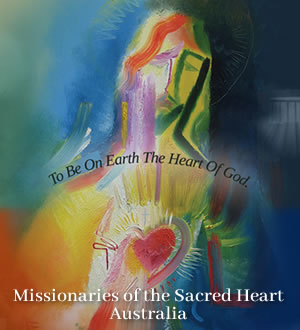 ‘A lawyer asked Jesus a question to test him. “Teacher, which commandment in the law is the greatest?” Jesus said to him, “‘You shall love the Lord your God with all your heart, and with all your soul, and with all your mind.’ This is the greatest and first commandment. And a second is like it: ‘You shall love your neighbour as yourself.’ On these two commandments hang all the law and the prophets.” (Matthew 22:35-40)
‘A lawyer asked Jesus a question to test him. “Teacher, which commandment in the law is the greatest?” Jesus said to him, “‘You shall love the Lord your God with all your heart, and with all your soul, and with all your mind.’ This is the greatest and first commandment. And a second is like it: ‘You shall love your neighbour as yourself.’ On these two commandments hang all the law and the prophets.” (Matthew 22:35-40)
Jesus focuses attention, in the most simple terms, on the very essence of what it means to be a human being: to be a woman or a man is to live a life of love. Whatever we might achieve in our life, if we fail in this our life has been a failure. Whatever our failures, if we learn something about how to receive and to give love, our life has certainly not been in vain. In reflecting on this passage I wish to take as my guides Saint John of the Cross and one of the great theologians of the last century, Karl Rahner SJ.
John of the Cross tells us what we all know from Jesus himself: ‘At the evening of life, you will be examined in love’ (Sayings of light and love n.57). At the last supper, Jesus asked us to love one another as he loves us (John 15:12). If that is what he asks us to do, he must know that it is possible. The Hebrew Bible cannot be expected to imagine anything quite as beautiful as that, but Jesus quotes the command that we love others as we love ourselves (Leviticus 19:18 - Matthew 22:39). That’s a good start. We all know how important is this love which we have for our fellow human beings. If we fail in this, then any other love we might think we have, is phoney. This is certainly true of any love we might claim to have for God (see 1John 4:20).
However it is not on our love for each other that I wish to reflect now. For there is a more basic love, and it is no accident that in today’s Gospel Jesus speaks first of our love for God. What we have come to see through Jesus is that ‘God is love’ (1John 4:16). We are made in God’s image and thanks to Jesus we know that God is not an isolated, infinite, solitary being. God is one because in God communion in love is complete. We see this in Jesus and in the Spirit of love that he shares with the Father, and we know that the love Jesus experienced is the love that is the very being of God. For us, real love (‘charity’) is the love that God pours into our hearts. When we offer this love to other people, we are truly loving them as Christ loves us. Jesus said as much when he prayed to his Father: ‘May the love with which you have loved me be in them’(John 17:26). Love for God is the essential love of the human heart and every other love is possible only to the extent that we open our hearts to receive God’s love and live in communion of love with God. So, what does it mean to love God?
We can experience feelings of love towards God. The main feeling is one of longing. In Psalm 73 we read: ‘Whom have I in heaven but you? Earth has nothing I desire besides you ... My flesh and my heart fail; but God is the strength of my heart and my portion for ever ... As for me, it is good to be near God’ (Psalm 73:25-28). Sometimes we can also feel a tender affection towards God, feelings like those we have towards people of whom we are especially fond. Today’s Responsorial Psalm uses an expression of deep feeling to speak of our love for God. We could properly translate it: ‘I am moved with tender feelings of love for you, Lord my strength’ (Psalm 18:1). However, this is an exceptionally daring statement, which is found nowhere else in the whole of the Bible. When the Bible speaks of love for God it generally refers not to feeling but to commitment to do God’s will. In his book entitled ‘On Prayer’, Karl Rahner writes: ‘We must control our thirst for that grace of felt devotion which makes us experience the nearness of God: this must be left entirely in God’s hands, since what matters to us is only the doing of God’s holy will’ (page 44). John of the Cross tells us that the proper response to God is: ‘an habitual and loving attentiveness of the will to God’ (Spiritual Canticle 28,10).
Jesus clearly approves of the statement in the Book of Deuteronomy, which commands us to do this with all our heart, soul and mind. Love is a decision. John of the Cross reminds us: ‘The decision of the will is quite distinct from feeling. The will is united with God by its operation, which is love, and not by any feeling or gratification that we might experience. These remain in us. They are not love, but stimulants to love’ (John of the Cross, 14th April 1589).
Just as true love for other people is a sharing in God’s love for them, so love for God is a sharing in the love that Jesus has for his Father. It is not something we can work up on our own. We are asked only to open our hearts and let the Spirit pour something of Jesus’ love into them. The love we are to give to God is the fire of God’s own love caught by the soul. This is the fire that Jesus longed to cast upon the earth by kindling human hearts (Luke 12:49). Listen once more to John of the Cross: ‘God will show you how to love Him as perfectly as you desire ... Transforming your soul into his love, God gives you his own strength by which you can love Him. As if he were to put an instrument in your hands and show you how it works by operating it jointly with you, God shows you how to love and gives you the ability to do so’ (Spiritual Canticle 38,4).
We can imagine ourselves learning to play the harp. God puts his arm around us and shows us where to place our fingers and how to pluck the strings. God is constantly doing that with our hearts, teaching us to love. Karl Rahner uses a striking image when he suggests that many of us ‘live, as it were, with our back to God, knowing indeed that God is watching us, but never turning to speak to God, because we fear the act of prayer’ (page 37).
To love is to surrender to God who is other and who loves us and wants us to respond in love. Karl Rahner writes: ‘Let us see God, the Almighty and Holy One. Let us surrender to God our whole being, uniting ourselves to God with every fibre of our souls. Let us fling ourselves wide open to God; and we shall know that bliss, at once yearning and sweet, which pervades us when we give to God our whole being and our whole world. My Lord and my God! To You we may surrender ourselves entirely. Through You, what is hard in us becomes tender; and in our pure worship of You, we may reveal what we keep hidden from everyone. We can open our hearts freely to You, whispering to You what we are and what we do, our successes and our failures, our sorrows and our joys. In yielding ourselves entirely to You, we have no fear of being deceived. We offer to you our most precious treasures knowing that the loving enthusiasm in doing so will not turn to the disillusion and bitterness of a betrayed love. This love cries out to God in the depths of our hearts. All the powers of the soul well up to meet God, and there is no ebb. God becomes the centre of our life, loved with a greater love than we bear ourselves, a love permeated by the inspired knowledge that it is He who has first loved us. God never fails to answer the call of love rising to Him from the shadows’ (p. 42).
If we find ourselves longing for God’s love and longing to love in response, then we are already experiencing love. As Karl Rahner says: ‘We often feel that our heart is stony, and that we have no power to warm it with love. There is, however, one thing we can all do: we can heed the first feeble stirrings of a love for God, the first timid longing of our restless hearts for God’ (page 47). When we experience a deep restless searching, emptiness, meaninglessness, we are experiencing this call. Likewise, when we experience an act of loving kindness that frees us from crippling fear or heavy sorrow and we feel a surge of deep calm and joy, we know that we have been touched and blessed by God. Karl Rahner’s advice to us is: ‘When we are thus visited by God through sorrow or through joy, we must nourish the inward urge to love awakened in our souls’ (page 48).
It is natural to love God who loves us and who gives us the grace to respond in love. John of the Cross expresses this well as he addresses the soul: ‘O most beautiful of creatures, transcendent spirit, who long to know where your beloved is and where you may find him so as to be united with him. He dwells within you. You are yourself the tabernacle, his secret hiding place. Rejoice, exult, for all you could possibly desire, all your heart’s longing is so close, so intimate as to be within you; you cannot be without God’ (Spiritual Canticle, 1,7).
I conclude with the last words spoken by Saint Therese of Lisieux. May we so grow in love that these will be our sentiments too when our life’s journey is complete: ‘I am not sorry for handing myself over to love ... Oh, I love Him! My God, I love you.’
Michael Fallon msc



